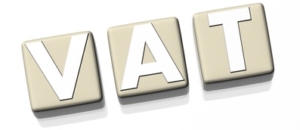
Where an employer makes a car available to an employee, that employee will be charged on the “cash equivalent” of the private use of the car. This is known as Benefit-in-Kind (BIK). This BIK is then taxed on an employee’s marginal rate for PAYE, PRSI and USC.
Cash Equivalent of a Car
The cash equivalent of the use of a car is currently 30% of the original market value (OMV), this being the market value of the car on the date of registration. Where the business kilometres for a tax year exceed 24,000km, the cash equivalent of the use of a car is reduced by a percentage which can range from 6% to 24% based on the number of business kilometres travelled. Business Kilometres are the kilometres an employee is required to travel in the vehicle when performing the duties of his or her employment. It does not include travelling to and from the general place of work. Employers are obliged to keep a record of the business mileage travelled by their employees.
As a result of the Finance Act 2019, from 01 January 2023 the cash equivalent of a car will be determined based on the car’s CO2 emissions. Similarly, the business kilometres percentages will also be dependent on the CO2 emissions.
There are other reductions available when calculating the cash equivalent of a car:
- Where the car is only available for less than a full year.
- Where an employee works an average of 20 hours a week.
- Where an employee travels at least 8,000 kilometres annually on employer’s business.
- Where due to the nature of the role, the employee spends at least 70% of their time working away from the employer’s premises.
Sample BIK Calculation
A car is provided by the employer with an OMV of €28,000.
The actual business kilometres travelled in the year are 31,630 kilometres, with an employee contribution of €1,000.
As of 2022, the cash equivalent of business kilometres of 31,630 is equal to the OMV x 24% (being the % which applies to mileage between 24,000 and 32,000). The cash equivalent of the use of the car is then reduced by the €1,000.
Cash Equivalent (OMV x 24%) €28,000 x 24% = €6,720
Less amount made good (€1,000)
Amount subject to BIK €5,720
Electric Cars
For 2022, there is no BIK on fully electric cars with an OMV of €50,000 or less.
However, the Finance Act 2021 has introduced a tapered reduction in this BIK exemption from 2023 – 2025, at which point the BIK percentage rates will change in accordance with the Finance Act 2019. This will expire from 2026.
The reductions from 2023 – 2026 are as follows:
- 2023 – fully electric cars with an OMV of €35,000 or less will continue to be BIK exempt
- 2024 – fully electric cars with an OMV of €20,000 or less will be BIK exempt. The excess will be chargeable to BIK at the relevant rate.
- 2025 – fully electric cars with an OMV of €10,000 or less will be BIK exempt. The excess will be chargeable to BIK at the relevant rate.
- 2026 – the exemption will be abolished, and the full market value will be chargeable at the relevant rate*.
*This reduction applies irrespective of the actual OMV of the vehicle or when the vehicle was first provided to the employee.
For more information relating to BIK on employer-provided cars, please contact us.



